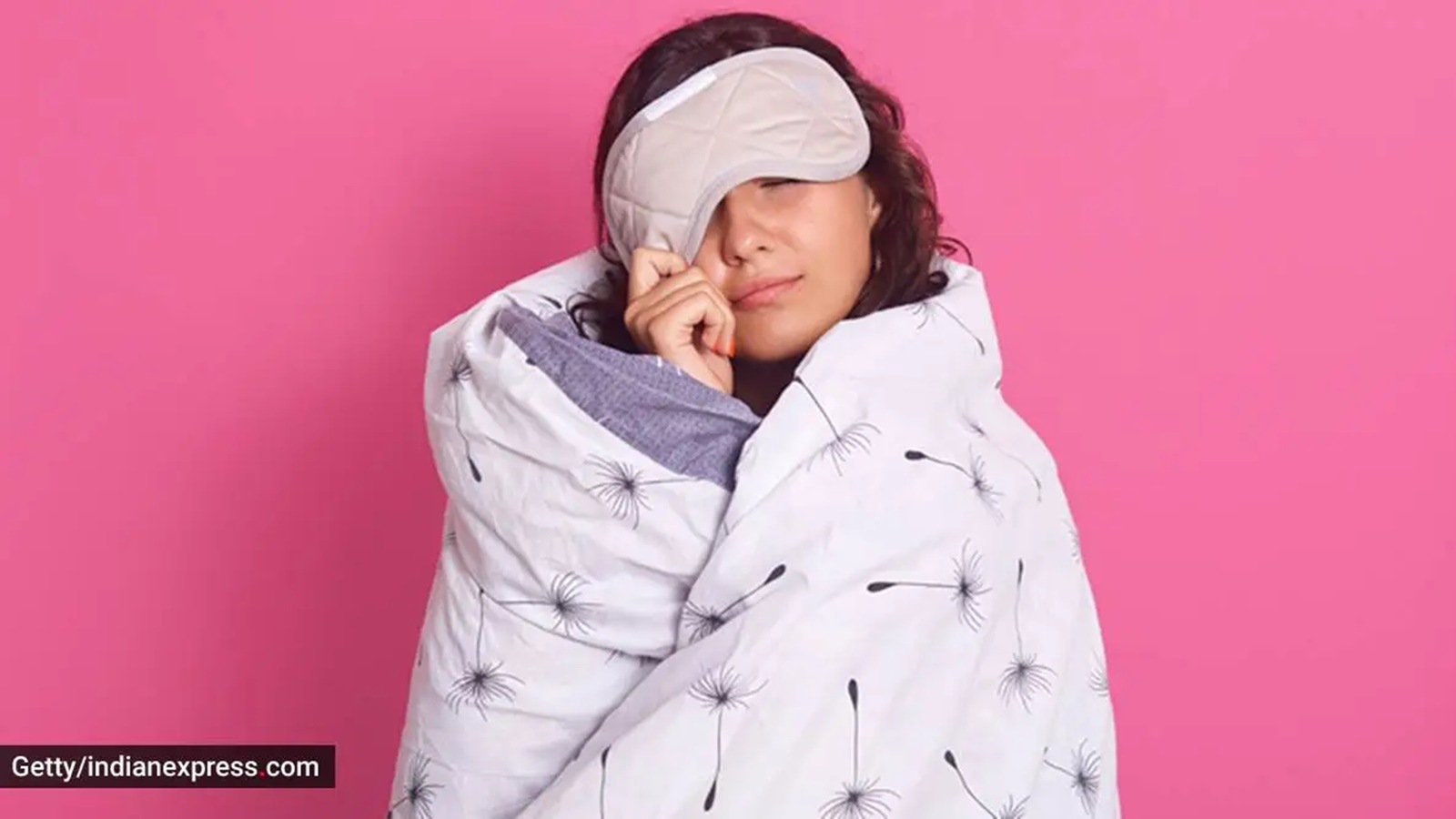Hina Khan continues to document her breast cancer journey on social media and in various interviews. In a recent podcast, she opened up about feeling extremely cold during and after her chemotherapy sessions. “I used to sleep in three quilts at night throughout my chemotherapy journey. Three quilts, gloves, topi (cap), mota socks (thick socks). This is how I slept throughout my chemotherapy. I used to feel so cold. I used to shiver,” Khan, 37, told Pinkvilla.
Taking a cue from her revelation, let’s understand the connection between the two.
Dr Ravi Wategaonkar, director, medical oncology, TGH Oncolife Cancer Centre, said that chemotherapy is effective in treating cancer and improving the quality of life of a patient. “Common side effects include fatigue, nausea and vomiting, hair loss, loss of appetite, weakened immunity, fatigue, constipation, diarrhoea, and mouth sores. The side effects vary from person to person, and one shouldn’t panic as they subside within a few days,” said Dr Wategaonkar.
Dr Nithin SG, consultant, medical oncology at the CK Birla Hospital®, Delhi, added that chemotherapy can affect the body’s ability to regulate temperature, leading to sensations of excessive cold or heat. “This occurs due to various factors, including direct interference with the brain’s temperature control mechanisms, autonomic nervous system dysfunction, peripheral neuropathy, and anemia. Some patients experience cold intolerance, while others may have hot flashes and night sweats,” said Dr Nithin.
Dr Nithin quoted studies suggesting that around 30-40 per cent of patients undergoing chemotherapy report some form of temperature dysregulation. He, however, said that it is “not a universal symptom”.
The severity and type of temperature fluctuations can vary based on the specific chemotherapy drugs used, the patient’s overall health, nutritional status, and the presence of infections, noted Dr Nithin.
“In some cases, chemotherapy-induced nerve damage (neuropathy) can lead to a persistent feeling of cold, particularly in the hands and feet. Additionally, chemotherapy-induced anemia reduces oxygen supply to tissues, which can further contribute to cold sensations,” elaborated Dr Nithin.
Story continues below this ad
One of the most critical factors to consider is the risk of infection, as chemotherapy weakens the immune system. “Infections can sometimes cause an unusual drop in body temperature, making it crucial for patients experiencing persistent chills or cold sensitivity to seek medical attention. If a patient feels excessively cold, they should monitor for other symptoms like fatigue, dizziness, or any signs of infection,” suggested Dr Nithin.
Experts urge that staying hydrated, dressing in warm layers, maintaining good nutrition, and consulting a doctor for potential underlying issues — such as anemia or infection — can help manage these symptoms effectively.
 Is feeling cold an universal side effect of chemotherapy? (representative image) (Photo: Getty Images/Thinkstock)
Is feeling cold an universal side effect of chemotherapy? (representative image) (Photo: Getty Images/Thinkstock)
Consulting a doctor for symptom management and staying proactive in self-care can help reduce discomfort and improve overall well-being during treatment.
“Managing side effects involves a combination of lifestyle adjustments, diet, and hydration. Eat small, nutrient-rich meals including protein, whole grains, fruits, and vegetables to stay active and energized. One can ensure proper hydration by drinking adequate water. Adequate rest and regular check-ups ensure better symptom management,” said Dr Wategaonkar.
Story continues below this ad
Cancer patients must focus on their diet while undergoing chemotherapy. “Doing so can help maintain strength, support immunity. Eating small, frequent meals and avoiding processed or spicy foods can also help manage nausea and improve overall well-being during treatment. One can also take the help of an expert regarding what to eat and what to avoid from the diet,” said Dr Wategaonkar.
DISCLAIMER: This article is based on information from the public domain and/or the experts we spoke to. Always consult your health practitioner before starting any routine.


